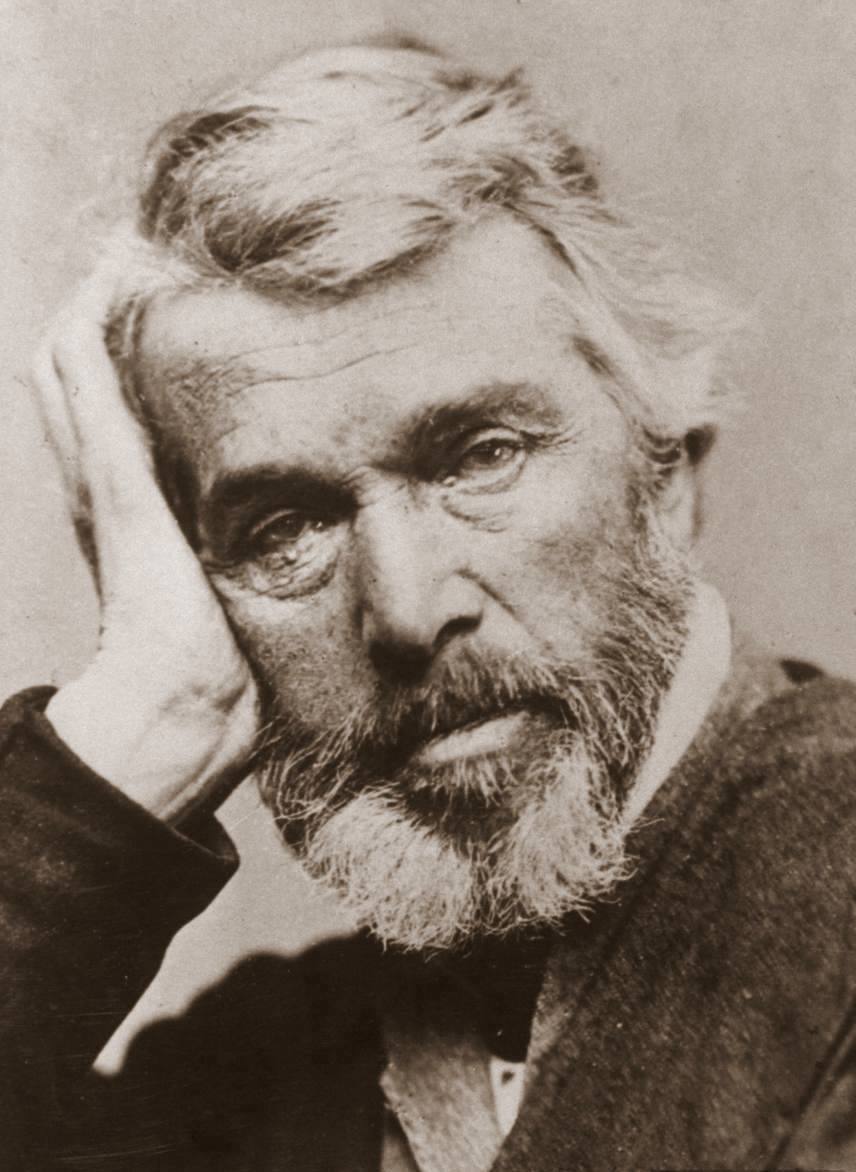Much has been said of Mahomet's propagating his Religion by the sword. It is no doubt far nobler what we have to boast of the Christian Religion, that it propagated itself peaceably.
en
On Heroes, Hero-worship, and the Heroic in History, 1841
Thomas Carlyle Citations
Thomas Carlyle: Citations en anglais
“The true University of these days is a Collection of Books.”
1840s, Heroes and Hero-Worship (1840), The Hero as Man of Letters
Source: On Heroes, Hero Worship and the Heroic in History
1850s, Latter-Day Pamphlets (1850), Stump Orator (May 1, 1850)
1840s, Past and Present (1843)
1840s, Heroes and Hero-Worship (1840), The Hero as Prophet
1840s, Heroes and Hero-Worship (1840), The Hero as Man of Letters
“Every noble work is at first impossible.”
From Past and Present (1843), Chapter XI : Labour
The Wikipedia page for Thomas Carlyle has links to the Project Gutenberg version of this book
1840s
Bk. I, ch. 5.
1830s, Sartor Resartus (1833–1834)
“He that works and does some Poem, not he that merely says one, is worthy of the name of Poet.”
Introduction to Cromwell's Letters and Speeches (1845).
1840s
Bk. II, ch. 9.
1830s, Sartor Resartus (1833–1834)
1840s, Heroes and Hero-Worship (1840), The Hero as Prophet
“A witty statesman said, you might prove anything by figures.”
Source: 1840s, Chartism (1840), Ch. 2, Statistics.
Thomas Carlyle, "On Heroes, Hero-Worship and the Heroic in History" (1841), pg. 64-67
1840s
1840s, Heroes and Hero-Worship (1840), The Hero As King
“It depends on what we read, after all manner of Professors have done their best for us.”
1840s, Heroes and Hero-Worship (1840), The Hero as Man of Letters
1840s, Heroes and Hero-Worship (1840), The Hero as Divinity
“O poor mortals, how ye make this earth bitter for each other.”
Pt. I, Bk. V, ch. 5.
1830s, The French Revolution. A History (1837)
“History is the essence of innumerable biographies.”
On History.
1820s, Critical and Miscellaneous Essays (1827–1855)
On Napoleon; Carlyle in his essay on Mirabeau, 1837, quotes this from a "New England book".
1830s, Sir Walter Scott (1838)
1840s, Past and Present (1843)
On History.
1820s, Critical and Miscellaneous Essays (1827–1855)
Variante: What is all Knowledge too, but recorded Experience, and a product of History; of which, therefore, Reasoning and Belief, no less than Action and Passion, are essential materials.
1850s, Latter-Day Pamphlets (1850), The Present Time (February 1, 1850)
“The history of the world is but the biography of great men.”
1840s, Heroes and Hero-Worship (1840), The Hero as Divinity
